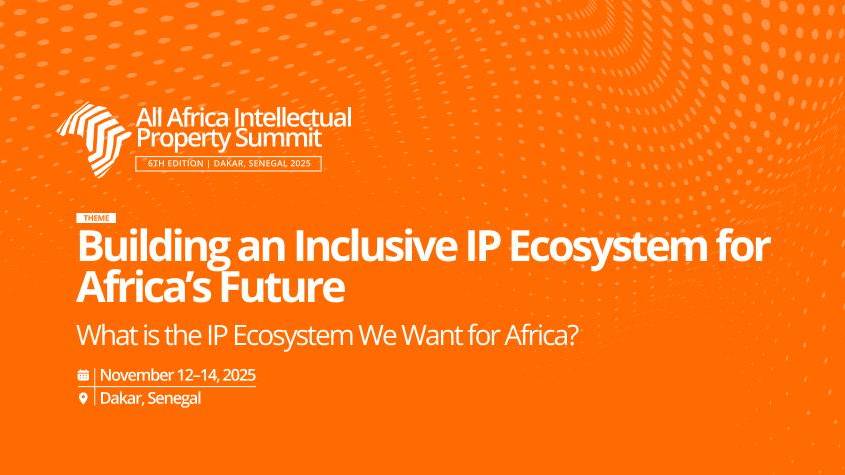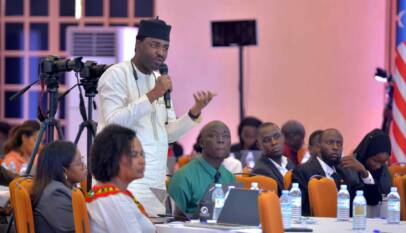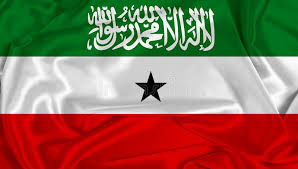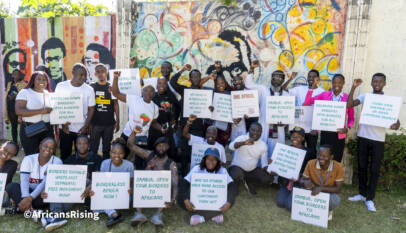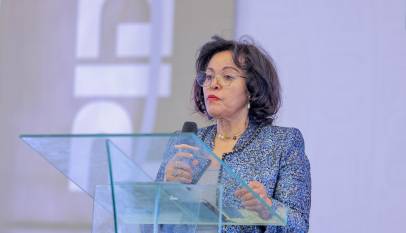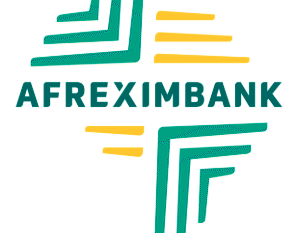AAIPS 2025: ATIP Day 2025 Convening Chart Path to African Integration Through IP
As a prelude to the All-Africa Intellectual Property Summit (AAIPS) 2025, stakeholders from across Africa’s IP landscape came together on African Technology and Intellectual Property (ATIP) Day 2025 for a high-level dialogue themed: ‘Driving Regional Integration and Economic Development in Africa through IP.”
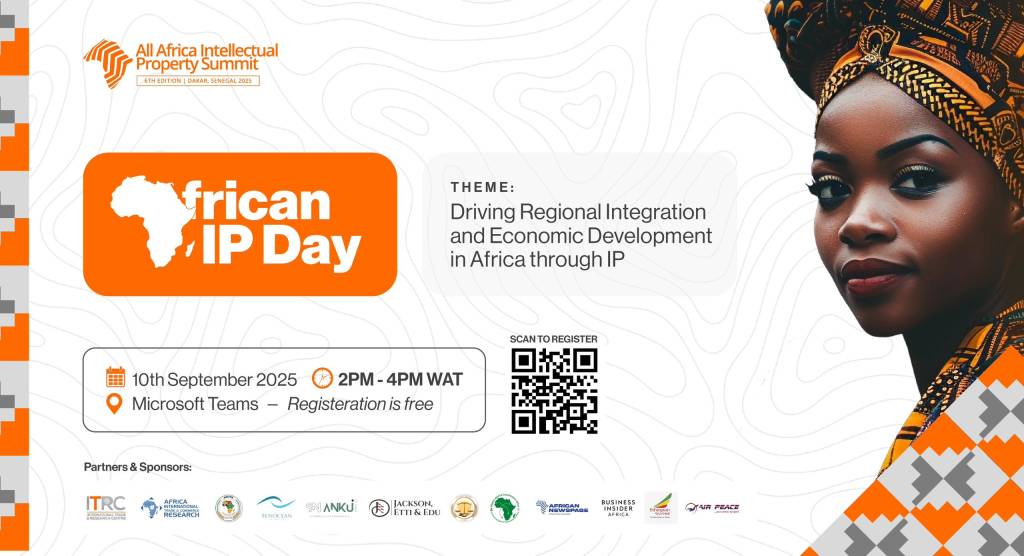
The dialogue served as a curtain-raiser to the 6th All-Africa IP Summit (AAIPS 2025), scheduled for November 12–14 in Dakar, Senegal, under the theme “Building an Inclusive IP Ecosystem for Africa’s Future.” Participants examined the features of the OAPI intellectual property system, the role of institutions and private sector actors, the influence of public policy, and the rising importance of IP in driving integration and growth across the continent, among other issues.
The discussions underscored the urgent need to raise awareness of IP, strengthen enforcement capacity, and deepen collaboration among national and regional IP institutions. According to participants, these steps are crucial for building a more inclusive and effective IP ecosystem for Africa.
Speakers included leading voices in Africa’s IP space, including Obambi Wilfrid Vivien, Deputy Secretary of the African Network of Intellectual Property Judges (RAMPI); Fatou Camara, Head of Intellectual Property at Sonatel Group; Michèle Tatiana Ampfounyele, Head of IP Department at Maître Cheikh Fall Law Firm; Mamadou Siradjo Diallo, trainee lawyer at the Professional Training School of the Bar Associations–Paris Court of Appeal; and Annie Ndo’o, an official at the Ministry of Trade (Cameroon).
“Africa on the Cusp of an IP Revolution” – Mba-Kalu
In his opening address, Sand Mba-Kalu, Chair of AAIPS 2025 and founder of the International Trade and Research Centre (ITRC), described the gathering as both a reflection on decades of awareness-raising around IP in Africa and anticipation of a new era of innovation-driven growth. “We gather here at a moment of both reflection and anticipation; reflection on decades of work to raise awareness of IP, and anticipation of a revolution that can transform Africa’s economies, industries, and societies.”
Mba-Kalu stressed that intellectual property has become a global cornerstone of competitiveness, fueling growth from Silicon Valley to Asia and Europe and cautioned that Africa risks underutilizing its youthful energy and natural wealth without stronger systems to protect and commercialize innovation.
“The 21st century has shown that intellectual property is no longer optional; it is a cornerstone of competitiveness. IP is the invisible yet powerful currency that fuels innovation, attracts investment, and rewards creativity. Africa is blessed with talent and diversity, but without systems to protect and commercialize ideas, much of this potential remains underutilized. Intellectual property is the bridge that carries imagination into the marketplace,” he stated.
While acknowledging progress in aligning national strategies with global IP standards, Mba-Kalu pointed to persistent barriers: piracy, lack of financing for startups, and missed opportunities for farmers and artists.
“Too often, innovators struggle to protect their work, farmers do not benefit fully from geographical indications, and artists lose out due to piracy. These are not just legal gaps; they are economic losses. Strengthening our IP systems could unlock industrialization, diversify our economies, and empower Africa’s youth,” he said.
The AAIPS 2025 Chair tied the ATIP 2025’s theme directly to the African Continental Free Trade Area (AfCFTA), warning that the largest free trade area in the world cannot succeed without strong and harmonized IP systems.
“The AfCFTA, the largest free trade area in the world, cannot succeed without strong and harmonized IP systems. Our music, fashion, and agricultural products are already globally valued, but unless they are protected and commercialized through IP, much of their value will continue to leak abroad. This is a call to action,” he stressed.
Mba-Kalu assured AAIPS 2025 would be more than a talk shop. “In November, we will gather in Dakar not for a talk shop but to deliberate on how to strengthen IP offices, encourage SMEs and startups to integrate IP, promote geographical indications, protect traditional knowledge, and foster global partnerships. The Summit will also showcase African innovators who have harnessed IP to compete globally, inspiring others and building momentum for change.”
Mba-Kalu closed with a call for a coalition of governments, private sector players, academia, and civil society. “Building an inclusive IP ecosystem cannot be the work of one institution or government alone; it requires a coalition. Governments must provide enabling policies, businesses must integrate IP into their models, academia must train future professionals, and creators must demand fairness. When we protect their work, we protect Africa’s future.”
“IP Financing Remains Africa’s Untapped Goldmine” – Diallo
Mamadou Siradjo Diallo trainee lawyer at the Professional Training School of the Bar Associations–Paris Court of Appeal, framed intellectual property as a largely underleveraged resource for Africa’s SMEs and startups. “To obtain financing for IP assets, we have a system called IP collateralization. It is emerging as a promising mechanism, allowing SMEs to mobilize their innovation as bank guarantees, while retaining exploitation rights.”
Diallo also highlighted securitization of IP assets as another—though rare—financing mechanism, describing it as a way to convert intangible assets into structured financial instruments.
“This technique allows rights holders to temporarily transfer their asset to a specifically constituted entity in exchange for immediate liquidity. Repayment is assured by exploitation revenues, and this new instrument democratizes access to financing by creating alternatives to traditional mechanisms,” he noted.
He therefore urged regulatory reforms, better valuation methods, and stronger support systems. “The first is to adapt banking regulation to better account for intangible assets as guarantees. Second, evaluation instruments must be modernized to develop reliable and accepted IP valuation methods. Finally, we must build an integrated ecosystem, creating synergy between training, support, and financing for startups.”
“Africa Must Treat IP as Collateral to Unlock Innovation Capital” – Camara
Fatou Camara, Head of IP at Sonatel Group, emphasized financing as the critical bottleneck. “Small and medium enterprises form the backbone of African economies; however, accessing finance for intellectual property valuation agreements remains a critical challenge. We face persistent obstacles such as a lack of guarantees, high interest rates, and administrative complexities.”
She highlighted the OAPI–African Guarantee Fund (AGF) partnership as transformative: “This initiative is revolutionary because it recognizes IP as bank collateral. It mobilized billions in financing, providing bank guarantees for projects over five years, representing a transformative investment in African innovation. AGF guarantees up to 80% of amounts borrowed by innovative SMEs, substantially reducing risks for banks.”
Camara also pointed to the rise of venture capital in Africa: “The African private equity scene is experiencing structural transformation, with growing interest in innovation and technology. Launch Africa specializes in seed funding… while larger funds such as Partech Africa provide €1–50 million across the lifecycle of innovative SMEs. This shift shows that venture capital is increasingly geared toward building Africa’s technology-driven economy.”
“OAPI-Accredited Agents Are Strategic Guardians of Africa’s IP” – Ampfounyele
Michèle Ampfounyele, Head of IP Department at Maître Cheikh Fall Law Firm, underscored the pivotal role of OAPI-accredited agents. “The OAPI-accredited agent is a trusted intermediary with the privilege of representing rights holders in industrial property operations. Their role is not simply administrative; it is strategic for the credibility of the system.”
Ampfounyele stressed that agents also protect innovators financially: “By preventing notification failures, litigation, and procedural errors, accredited agents help avoid costly losses. They manage the entire registration and defence process, allowing creators to focus on their work rather than complex administrative hurdles.”
“Harmonising IP Laws Is the Pathway to Africa’s Economic Integration” – Ndo’o
Annie Ndo’o of the Ministry of Trade closed the session with a call for harmonisation. “Integration means bringing together different elements to create a coherent whole. In Africa, the reality is often the opposite: fragmentation. Each country operates with its own laws and regulations on IP, creating duplication and inefficiencies.”
Ndo’o linked this to the AfCFTA: “The AfCFTA was designed to promote economic integration… Yet Africa currently contributes only 2% to global trade. Harmonising IP frameworks is therefore essential to boosting intra-African trade, supporting industrialisation, and ensuring that African innovators are not left behind.”
She cited AU initiatives such as the AfCFTA IP Protocol, the African Medicines Agency (AMA), and geographical indications strategies as evidence that progress is possible.
The ATIP 2025 dialogue underscored that Africa’s economic transformation hinges on building a robust IP ecosystem—one that values innovation, protects creators, and drives regional integration under the AfCFTA. With AAIPS 2025 on the horizon, the continent’s IP community stands ready to chart a bold, forward-looking path.

